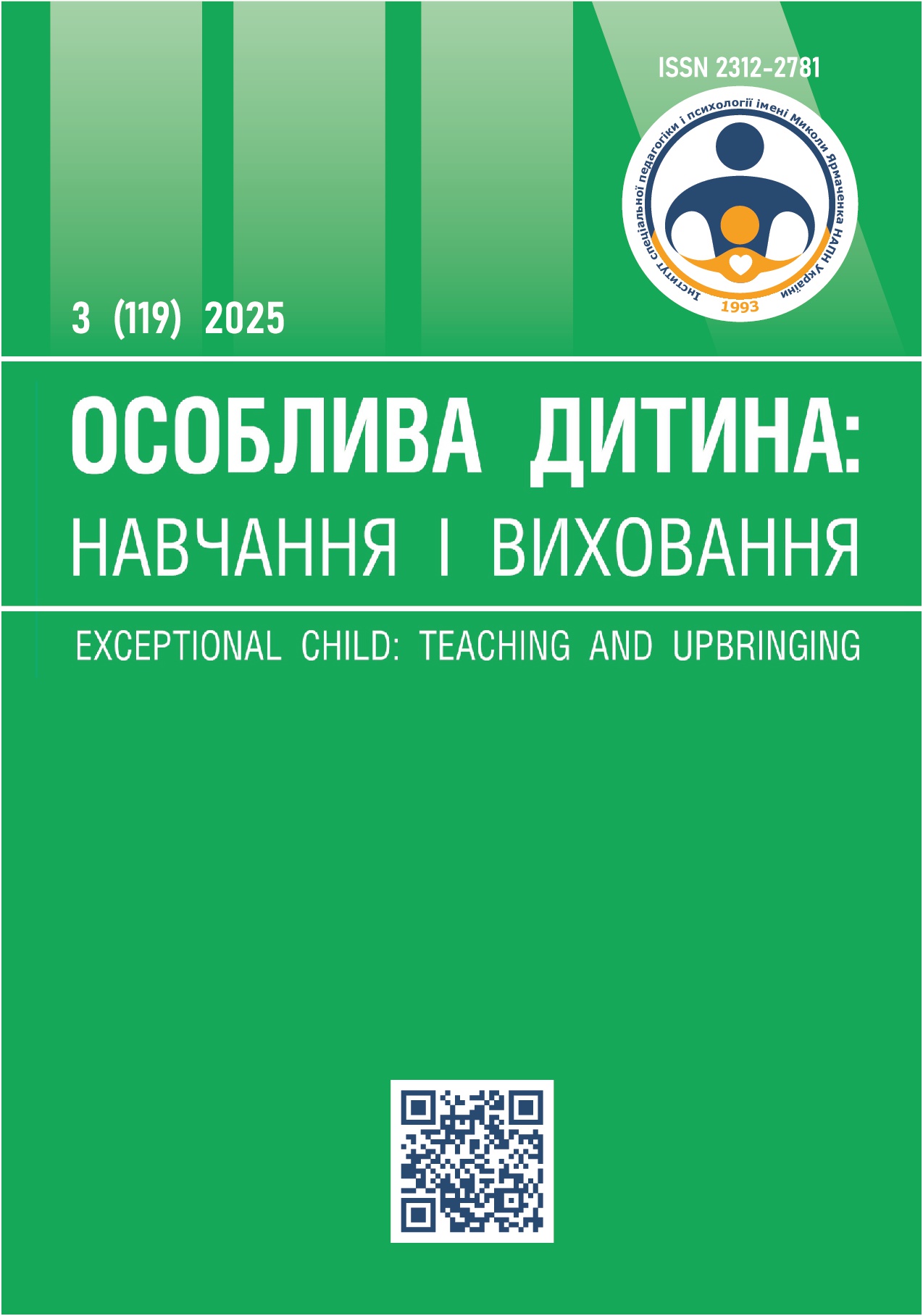INVESTIGATION OF THE CHARACTERISTICS OF PSYCHOTRAUMA IN CHILDREN WITH SPECIAL EDUCATIONAL NEEDS
Abstract
The author attempts to investigate the characteristics of psych trauma in children with special educational needs (SEN) in comparison with children with typical development, using the method of clinical interview with elements of observation. The purpose of the study is to identify the specific manifestations of psych trauma in children with SEN and to determine the factors influencing their level of psychological resilience. The study employed a combination of theoretical and empirical methods. Theoretical methods included the analysis and systematization of scientific literature on psych trauma and the psycho-physical development of children with SEN. The empirical part was based on observing children’s behavior in educational and social environments, conducting interviews with parents and educators, and applying the clinical interview method with observational elements aimed at assessing emotional state, anxiety levels, behavioral reactions, and social adaptation.
The study demonstrated that children with SEN are characterized by a lower baseline level of psychological resilience to traumatic events, influenced both by crisis situations, including war, and by the specific features of their intellectual and personal development. It was found that this group of children exhibits heightened dependence on external conditions alongside underdeveloped internal regulatory mechanisms, which manifests in difficulties independently coping with emotional stress, high sensitivity to environmental changes, and a pronounced need for structured adult support. The study further shows that, when provided with a safe environment and individualized assistance, children with SEN can demonstrate positive progress in developing adaptive strategies and gradually increasing their resilience.
In comparison, children with typical development display a higher level of spontaneous resilience to psych trauma, evidenced by their ability to constructively overcome frustration, restore trust in their environment, maintain emotional balance, and exhibit flexible behavioral responses. Their cognitive functions recover more rapidly, and social activity is maintained even under moderate or sufficient levels of traumatic impact.
The findings of the study highlight the need to develop specially adapted psychodiagnostics tools and individualized psych correction programs for children with SEN. Future research should focus on identifying and implementing effective psychological support strategies that promote resilience and the development of adaptive coping mechanisms in children with special educational needs.
References
Особлива дитина: навчання і виховання. №3(119). 2025. с. 178-192


